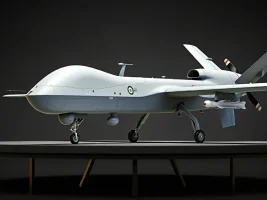- Views: 4K
- Replies: 47

French aviation behemoth Dassault is savoring the success of its Rafale fighter jet but faces a complex production dilemma.
An order backlog of 211 Rafales – 141 for export and 70 for the French Air Force – leaves the company eager to boost production.
Yet, a confluence of obstacles could result in new customers facing a decade-long delivery wait.
The Production Bottleneck
Dassault hopes to double production from 13 to 20 jets annually, which would still take a full decade to clear the backlog.A shortage of skilled engineers within the Rafale's intricate supply chain presents the primary roadblock.
Additionally, suppliers are reluctant to invest in capacity expansion amid worries about the long-term sustainability of higher production rates.
India: A Potential Lifeline
Dassault sees a solution in India, a key Rafale customer.A proposed takeover of Dassault Reliance Aerospace Limited (DRAL), the French firm's joint venture with Reliance Group, aims to facilitate increased outsourcing of Rafale components to Indian suppliers.
Additionally, a second production line established at DRAL's Nagpur facility could produce 6-8 Rafales per year.
Analysis
While an Indian production line wouldn't solve Dassault's immediate backlog, but it's a strategic play.It signals a commitment to fulfilling Indian orders (including the potential 27 Rafale M jets in 2024) and tackling future demand.
This could reassure hesitant customers, particularly those seeking long-term reliability rather than immediate delivery.
Conclusion
The Rafale's popularity is undeniable, but the production bottleneck is a harsh reality.Dassault's ability to overcome supply-chain limitations and its partnership strategy with India will determine its success in meeting global demand.
If Dassault can navigate these challenges, the Rafale's dominance in the skies could endure for decades to come.

